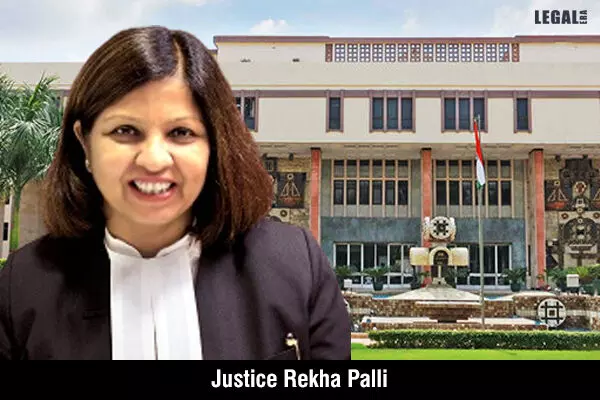- Home
- News
- Articles+
- Aerospace
- Agriculture
- Alternate Dispute Resolution
- Banking and Finance
- Bankruptcy
- Book Review
- Bribery & Corruption
- Commercial Litigation
- Competition Law
- Conference Reports
- Consumer Products
- Contract
- Corporate Governance
- Corporate Law
- Covid-19
- Cryptocurrency
- Cybersecurity
- Data Protection
- Defence
- Digital Economy
- E-commerce
- Employment Law
- Energy and Natural Resources
- Entertainment and Sports Law
- Environmental Law
- FDI
- Food and Beverage
- Health Care
- IBC Diaries
- Insurance Law
- Intellectual Property
- International Law
- Know the Law
- Labour Laws
- Litigation
- Litigation Funding
- Manufacturing
- Mergers & Acquisitions
- NFTs
- Privacy
- Private Equity
- Project Finance
- Real Estate
- Risk and Compliance
- Technology Media and Telecom
- Tributes
- Zoom In
- Take On Board
- In Focus
- Law & Policy and Regulation
- IP & Tech Era
- Viewpoint
- Arbitration & Mediation
- Tax
- Student Corner
- AI
- ESG
- Gaming
- Inclusion & Diversity
- Law Firms
- In-House
- Rankings
- E-Magazine
- Legal Era TV
- Events
- News
- Articles
- Aerospace
- Agriculture
- Alternate Dispute Resolution
- Banking and Finance
- Bankruptcy
- Book Review
- Bribery & Corruption
- Commercial Litigation
- Competition Law
- Conference Reports
- Consumer Products
- Contract
- Corporate Governance
- Corporate Law
- Covid-19
- Cryptocurrency
- Cybersecurity
- Data Protection
- Defence
- Digital Economy
- E-commerce
- Employment Law
- Energy and Natural Resources
- Entertainment and Sports Law
- Environmental Law
- FDI
- Food and Beverage
- Health Care
- IBC Diaries
- Insurance Law
- Intellectual Property
- International Law
- Know the Law
- Labour Laws
- Litigation
- Litigation Funding
- Manufacturing
- Mergers & Acquisitions
- NFTs
- Privacy
- Private Equity
- Project Finance
- Real Estate
- Risk and Compliance
- Technology Media and Telecom
- Tributes
- Zoom In
- Take On Board
- In Focus
- Law & Policy and Regulation
- IP & Tech Era
- Viewpoint
- Arbitration & Mediation
- Tax
- Student Corner
- AI
- ESG
- Gaming
- Inclusion & Diversity
- Law Firms
- In-House
- Rankings
- E-Magazine
- Legal Era TV
- Events
Delhi High Court Restrains EPFO from Taking Coercive Steps on Basis of Recovery Notices for Higher Pension

Delhi High Court Restrains EPFO from Taking Coercive Steps on Basis of Recovery Notices for Higher Pension
The Delhi High Court by its single judge Justice Rekha Palli has passed an interim order, restraining the Employees’ Provident Fund Organization (EPFO) from taking any coercive steps with respect to the notices issued to various pensioners who had sought for recoveries of the differential amount on account of the higher pension which they had received for the last many years.
In the present case, four pensioners had moved a plea, who, after their superannuation from different organizations, were drawing higher pension beyond the ceiling limit based on the options sought by EPF in 2018/19.
They challenged a communication dated 20th February, issued by EPFO on directing all the Regional Provident Fund Commissioners to take actions to stop higher pension of all those individuals who superannuated prior to 1 September, 2014, without giving any option for higher pension before their superannuation.
The pensioners further challenged the orders dated 1st May, passed by the authorities ordering them to refund the differential amount received by them towards pension beyond the ceiling limit, on the basis of the options for higher pension.
The pensioners vehemently asserted that once the authorities had themselves given them an option to opt for higher pension which was duly exercised, they could not have misinterpreted the decision of the Supreme Court in Employees Provident Fund Organisation & Anr. Etc. vs. Sunil Kumar B. & Ors. and reopened their cases.
They further informed the Court, that similar petitions were moved before Kerala High Court, Punjab and Haryana High Court and Himachal Pradesh High Court wherein interim orders were passed and EPFO was directed to maintain status quo as existing on 1 January, 2023.
The Judge noted that the authorities had not denied regarding the interim orders directing them to maintain status quo have been passed by the High Courts in question.
The Court while issuing notice, granted “six weeks’ time to the respondents for filing counter affidavit and four weeks’ time for filing rejoinder thereto, it is for reasons of parity with the orders passed by the aforesaid three High Courts, the respondents are directed to maintain status quo qua the pension being received by the petitioners, as on 1st January, 2023.”
It further added, “Consequently, till the next date, the respondents will stand restrained from taking any coercive steps in furtherance to the impugned notices issued to the petitioners seeking to make recoveries of the differential amount on account of the higher pension which they have received for the last many years.”
Additionally, the Court clarified that the interim directions will be subject to any clarification by the Supreme Court of its decision in Sunil Kumar B case.
Thus, the Court listed the matter on 21 September, 2023.



